Long Day's Journey Into Night (2018): in search of lost love | en busca del amor perdido
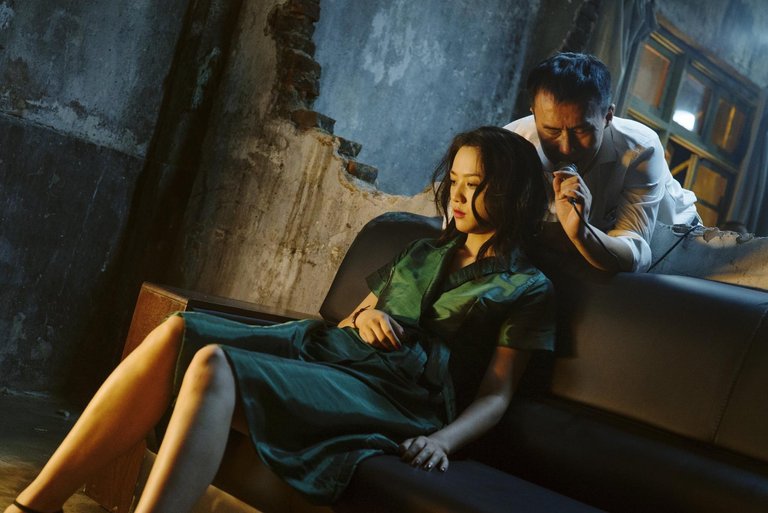
Escrita y dirigida por Bi Gan
In recent years I have noticed that more and more people are approaching Asian cinema. Now it's very common for someone to have seen a Korean drama or a Japanese movie, usually a thriller or a romance. However, Asian cinema is much more than South Korea and Japan, there are also very good films made in Vietnam, Thailand, Hong Kong, India, Indonesia, Taiwan, Iran (yes, Iran is an Asian country) and as in the case of the one I share with you today, in China.
En los últimos años he percibido que cada vez más y más personas se acercan al cine asiático. Ahora es muy común que alguien haya visto algún drama coreano o alguna película japonesa, normalmente algún thriller o un romance. Sin embargo, el cine asiático es mucho más que Corea del Sur y Japón, también hay muy buenas películas hechas en Vietnam, Tailandia, Hong Kong, India, Indonesia, Taiwán, Irán (sí, Irán es un país asiático) y como en el caso de la que les comparto hoy, en China.
Di qiu zui hou de ye wan (Long Day's Journey Into Night) is a film written and directed by Bi Gan that focuses on the story of Luo Hongwu, a man who after many years is forced to return to his hometown after the death of his father. However, his path is not going to lead towards redemption or a reconnection with his father, it's another person who motivates him to begin an impossible search. Twenty years ago, while searching for a way to avenge a friend who had been murdered under strange circumstances, Luo met a woman - by then the partner of a dangerous man - who remained in his memory. The beginning was very intense and somewhat violent, but then something difficult to explain and impossible to forget arose between them. One day the girl disappeared and then Luo left town. Now that he's back, he wants to look for the woman he loved, the woman he maybe still loves, but he only knows her name: Wan Quiwen. With so little information, will he be able to find it? Little by little the story advances and we pick up clues here and there, returning at times to the night when the lovers met and we follow the trail that Wan Quiwen left and what it has meant in Luo's life. The Uruguayan writer and poet Mario Benedetti already said it in a haiku in one of his books:
eternal loves
are the shortest"
Di qiu zui hou de ye wan (Long Day's Journey Into Night) es una película escrita y dirigida por Bi Gan que se centra en la historia de Luo Hongwu, un hombre que después de muchos años se ve obligado a regresar a su ciudad natal, tras la muerte de su padre. Sin embargo, su camino no va a dirigirse hacia una redención o una reconexión con su papá, es otra persona la que lo motiva a iniciar una búsqueda imposible. Veinte años atrás, mientras buscaba la forma de vengar a un amigo que había sido asesinado en extrañas circunstancias, Luo conoció a una mujer - para entonces la pareja de un hombre peligroso - que se quedó clavada en su memoria. El inicio fue muy intenso y algo violento, pero luego surgió entre ellos algo difícil de explicar e imposible de olvidar. Un día la chica desapareció y luego Luo se marchó de la ciudad. Ahora que ha vuelto, quiere buscar a la mujer que amó, la mujer que tal vez aún ama, pero sólo sabe su nombre: Wan Quiwen. Con tan poca información, ¿podrá encontrarla? Poco a poco la historia avanza y vamos recogiendo pistas aquí y allá, volviendo por momentos a la noche en que los amantes se conocieron y vamos siguiendo el rastro que Wan Quiwen dejó y lo que ha significado en la vida de Luo. Ya lo decía el escritor y poeta uruguayo Mario Benedetti en un haiku en uno de sus libros:
"Es casi ley
los amores eternos
son los más breves"
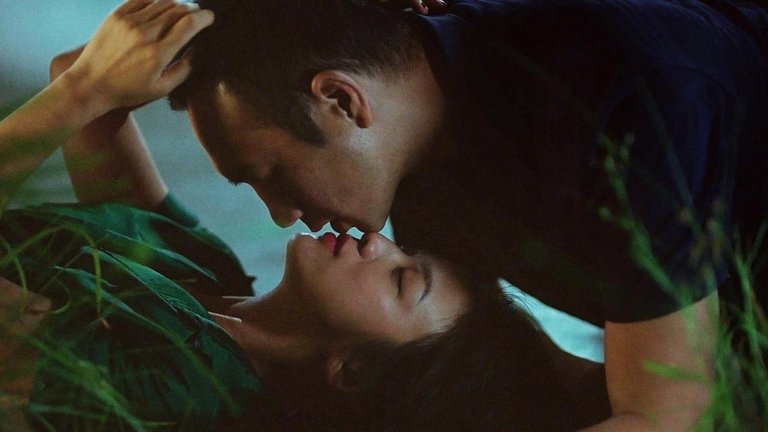
Although its center is the story of a love lost and now sought, the film has a lot of drama and thriller. There are quite violent scenes, sequences filmed in dark alleys, nights in the city with neon lights, tunnels, collapsed buildings. At times, it seems like a more police than personal search, but that noir atmosphere is compensated by beautiful photography and great symbolism.
A pesar de que su centro es la historia de un amor perdido y ahora buscado, la película tiene mucho de drama y de thriller. Hay escenas bastante violentas, secuencias filmadas en callejones oscuros, noches en la ciudad con luces de neón, túneles, edificios derruidos. Por momentos, pareciera una búsqueda más policial que personal, pero esa atmósfera noir es compensada por una hermosa fotografía y un gran simbolismo.
There are many highlights in making a good film, but there are two that I really like: the script and the cinematography. Asian movies, at least most of the ones I've seen, take special care in these two things. The stories they tell are emotional, they are full of meaningful, symbolic scenes, phrases that stay in your head ("Dreams are lost memories") and that are accompanied by visually beautiful sequences due to the colors, the angles, the presence of small details that add meaning to the scene. In Long Day's Journey Into Night there is a sequence that I find incredible, the whole scene in which Wan Quiwen is wearing her green dress. There are very sensual, romantic moments, there are very harmonious contrasts and seeing her walk through the tunnel, illuminated by the headlights of Luo's vehicle is a scene that condenses that chase, that search that the film talks about. There are also other incredible scenes, such as those at the beginning (shots of the city, a continuous shot of a garbage dump) or elements that seem to repeat themselves or that are introduced at the beginning and then take on greater meaning, such as the apples that the protagonists eat or the photograph hidden in a clock. And besides all that, there is another thing that makes this film memorable, from a technical point of view.
Hay muchos aspectos destacados en la realización de una buena película, pero hay dos que a mí me gustan mucho: el guión y la fotografía. Las películas asiáticas, al menos la mayoría de las que he visto, tienen especial cuidado en estas dos cosas. Las historias que cuentan son emotivas, están repletas de escenas significativas, simbólicas, frases que se te quedan en la cabeza ("Dreams are lost memories") y que son acompañadas de secuencias visualmente hermosas por los colores, los ángulos, la presencia de pequeños detalles que aportan significado a la escena. En Long Day's Journey Into Night hay una secuencia que me parece increíble, toda la escena en la que Wan Quiwen lleva puesto su vestido verde. Hay momentos muy sensuales, románticos, hay contrastes muy armónicos y verla caminar por el túnel, iluminada por los faros del vehículo de Luo es una escena que condensa esa persecución, esa búsqueda de la que habla el film. También hay otras escenas increíbles, como las del inicio (tomas de la ciudad, una toma continua de un botadero de basura) o elementos que parecen repetirse o que se introducen al inicio para luego cobrar mayor significado, como las manzanas que comen los protagonistas o la fotografía oculta en un reloj. Y además de todo eso, hay otra cosa que hace memorable esta cinta, desde el punto de vista técnico.
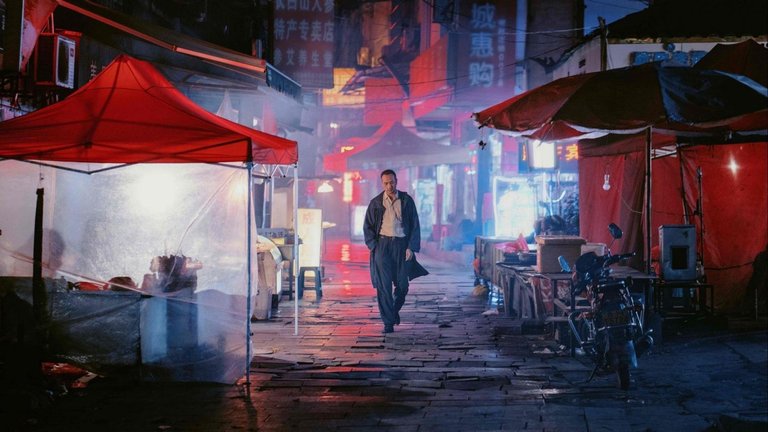
After much wandering looking for his lost love, Luo enters a movie theater. The title that appears on the screen is the same title of the movie we are watching (metafictional story?) and then, as he leaves the room, Luo reaches a kind of cave from which he cannot leave without the help of a boy who challenges him to a game of ping pong (?)
Después de mucho vagar buscando a su amor perdido, Luo entra a una sala de cine. El título que aparece en la pantalla es el mismo título de la película que estamos viendo (¿historia metaficcional?) y entonces, al salir de la sala, Luo llega a una especie de cueva de la que no puede salir sin la ayuda de un niño que lo desafía a un juego de ping pong (?)
He manages to get out of there and ends up at a place where he meets a woman who looks very similar to Wan Quiwen, but is it her? More than twenty years have passed, the name of his lost love is quite common and the woman says she's not who he's looking for... that whole last part seems like a dream, strange things happen and perhaps the last scene before the movie ends It gives the impression that either the story has become fantastic or it is a product of imagination, but beyond that there is another incredible thing in the scene, it's a continuous take of 59 minutes. That is, for practically an hour there is no camera cut. The characters go from one place to another, the camera goes down, up, turns, takes a close-up, enlarges the shot, rises over a huge house, enters a cell, but at no time is it interrupted. It's a great logistical challenge, with an impressive result that should have been even better in the cinema because the scene was projected in 3D. Long Day's Journey Into Night is a story, but also an experience that mixes love with the noir, the dreamlike with the real, memory with the present and that merges everything into unforgettable images. I can't wait to see some other film by this director or some of his short films, did any of you know Bi Gan? What other Chinese film do you remember seeing that you liked? I read you in the comments.
Logra salir de allí y va a dar a un lugar en el que se encuentra con una mujer que se parece muchísimo a Wan Quiwen, pero ¿es ella? Han pasado más de veinte años, el nombre de su amor perdido es bastante común y la mujer dice no ser quién él busca... toda esa última parte parece un sueño, suceden cosas extrañas y acaso la última escena antes de que termine la película da la impresión de que o bien la historia se ha tornado fantástica o bien es producto de la imaginación, pero más allá de eso hay otra cosa increíble en la escena, es una toma continua de 59 minutos. Es decir, durante prácticamente una hora no hay ningún corte de cámara. Los personajes van de un lugar a otro, la cámara baja, sube, da una vuelta, hace un close-up, amplía la toma, se eleva sobre una casa enorme, entra en una celda, pero en ningún momento se interrumpe. Es un gran desafío logístico, con un resultado impresionante que debió ser aún mejor en el cine porque la escena fue proyectada en 3D. Long Day's Journey Into Night es una historia, pero también una experiencia que mezcla el amor con lo noir, lo onírico con lo real, el recuerdo con el presente y que funde todo en imágenes inolvidables. No puedo esperar para ver alguna otra película de este director o alguno de sus cortometrajes, ¿alguno de ustedes conocía a Bi Gan? ¿qué otra película china recuerdan haber visto que les haya gustado?
Los leo en los comentarios.
Reseñado por @cristiancaicedo
Other posts that may interest you | Otros posts que pueden interesarte:
  |
|---|
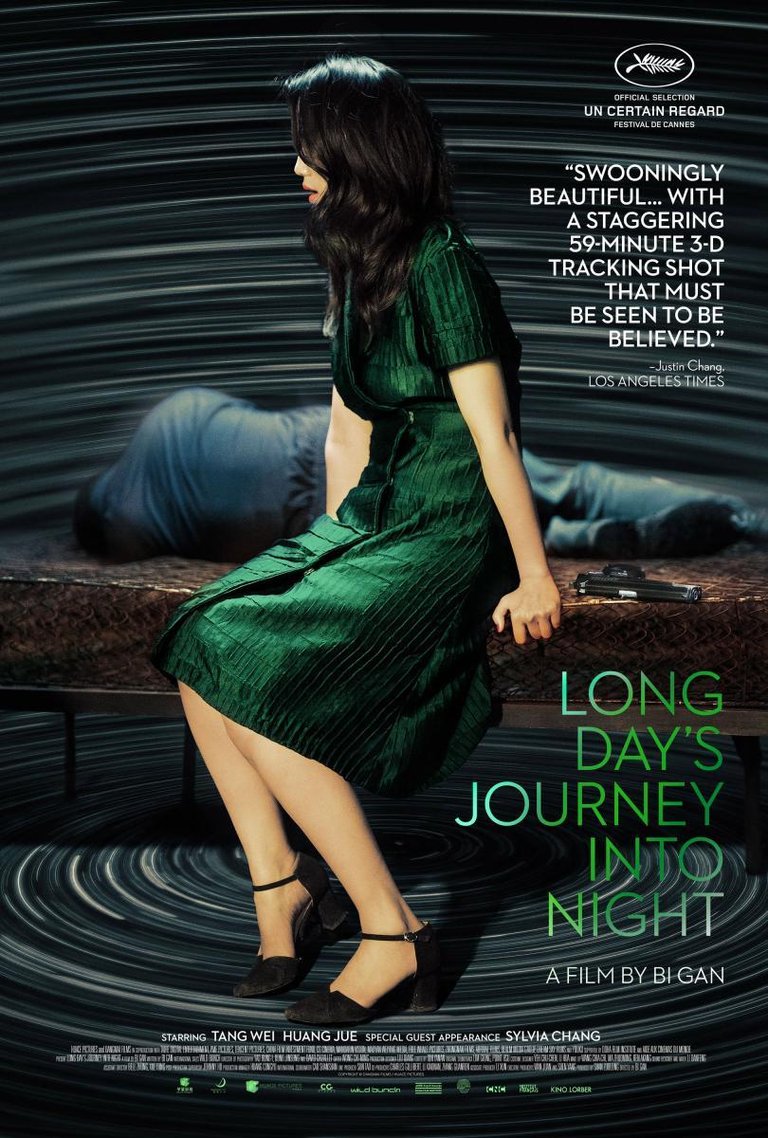


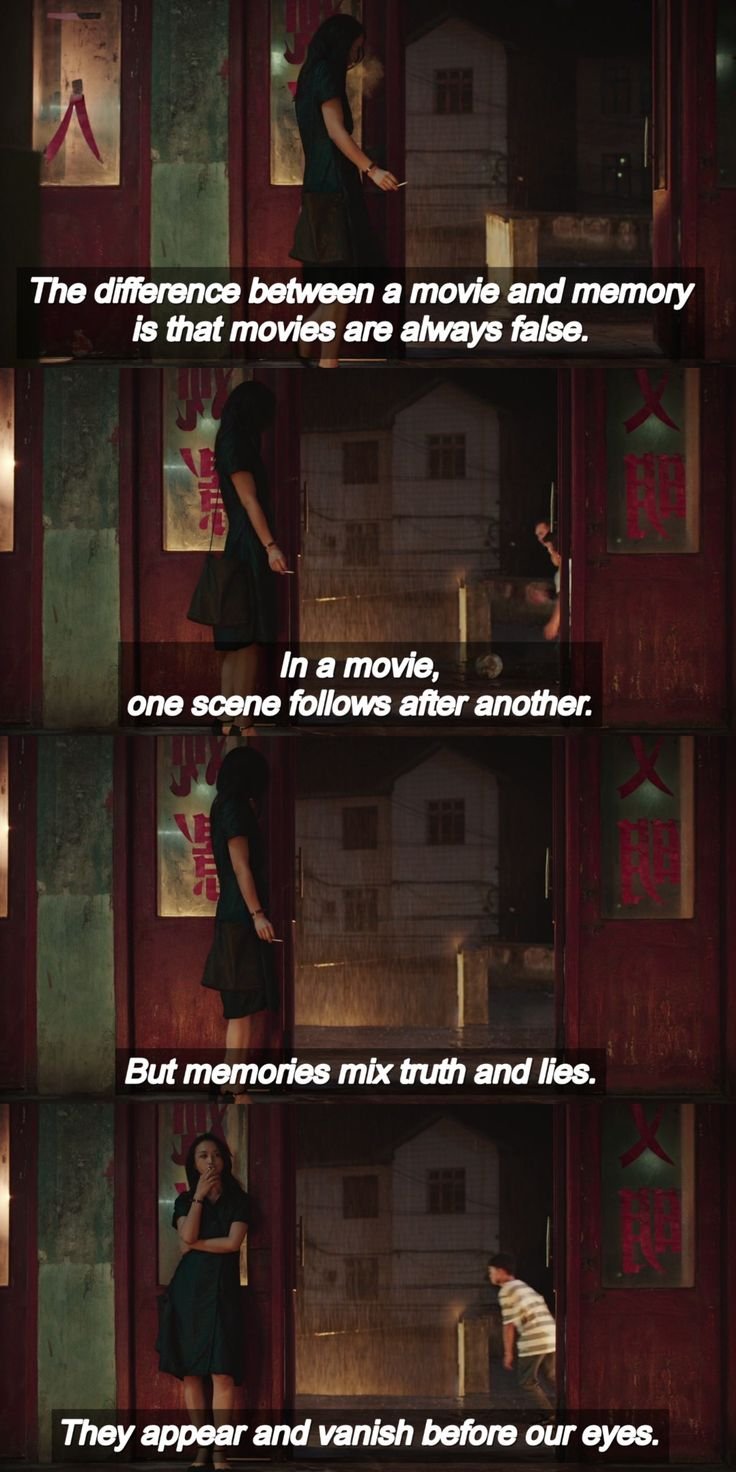
Such an incredibly beautiful film
It was! The plot, the cinematography, scenes, shots, colours... it's a poem dressed as a movie. Thank you so much for reading me.
¡Felicidades! Esta publicación obtuvo upvote y fue compartido por @la-colmena, un proyecto de Curación Manual para la comunidad hispana de Hive que cuenta con el respaldo de @curie.
Si te gusta el trabajo que hacemos, te invitamos a darle tu voto a este comentario y a votar como testigo por La Colmena.
Si quieres saber más sobre nuestro proyecto, te invitamos a acompañarnos en nuestro servidor de Discord.
Muchas gracias por el apoyo!